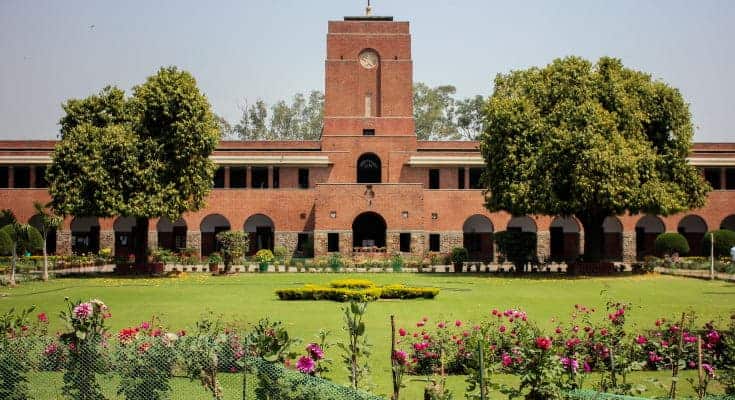DU will receive INR 100 crore grant from the government for achieving IoE status and aims to raise the equivalent amount on its own.
In September 2019, the University of Delhi was awarded the status of Institute of Eminence (IoE) by the Union Ministry of Human Resource Development (MHRD) on the recommendation of the University Grants Commission (UGC). In order to meet the requirements of the same, the university has launched the ‘Endowment Fund of the Delhi University’ which aims to raise INR 100 crore over a period of five years and has also encouraged alumni to invest in sectors of their choice, which may range from building to research funds.
This tag allows the University a grant of INR 100 crore from the government over five years and aims to raise the same amount on its own as well. The varsity states that the funds will be, “100% tax exemption and has no restriction on the amount of contribution. The donor can choose the area in which his/her contribution should be utilised. The information on the utilisation of funds will be displayed on the university website and 50 per cent of the funds earmarked for girl students. There also will be a compulsory audit of the endowment by the Controller and Auditor General (CAG) of India.”
According to a circular signed by the Vice-Chancellor, Yogesh Tyagi, the University is currently in the top 500 universities globally according to QS World University Ranking and is aiming to be in top 100 over the next 10 years. However, it lacks new institutions in the field. “To help our students and faculty attain academic excellence, the University would like to provide them with the necessary support, including the best and most modern research facilities and educational infrastructure”, further states the circular.
The letter also suggests, “It will provide opportunities and facilities to enhance the quality of teaching and research and to attract talent from outside the University and make them stakeholders in our growth story. This enterprise will ultimately lead to the University’s role and contribution to the nation-building and to scale greater heights in the global rankings.”
The University is yet to sign an agreement with the Ministry, under which it will lay out the plan to achieve the status of a world-class institution. Public institutions with IoE status are eligible for a government grant of INR 1000 crores. Upon getting the IoE status, DU will have complete academic, administrative and financial autonomy to spend the resources it raises and is allocated.
Recently Indian Institute of Technology, Delhi (IITD) also launched a global endowment fund of INR 250 crore in presence of President Ram Nath Kovind by 10 founder alumni members. The University states that the fund will be utilised for “each one teach one” providing a student aid of INR 10000 to each student to facilitate their education.
Feature Image credits: DU Beat Archives
Aditi Gutgutia
[email protected]




